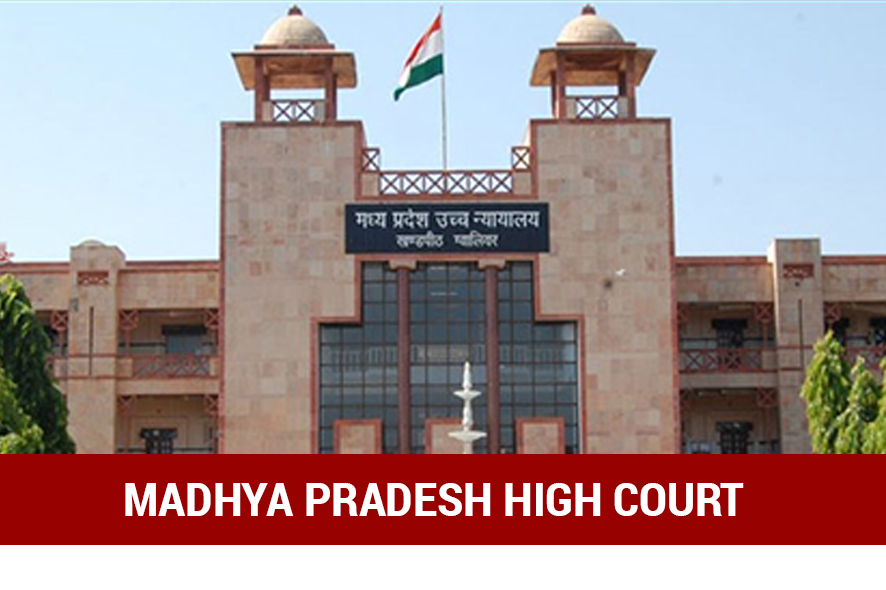Madhya Pradesh High Court | While deciding a writ petition filed under Article 226 of the Constitution of India against the mutation proceeding, Anand Pathak*, J., criticized the conduct of Tahsildar who decided the question of Will in a mutation proceeding in “undue haste” and without any authority of law.
“…all authorities discharging public duties or performing judicial/quasi-judicial functions must be sensitive to the cause of Justice as Supreme Virtue and must harbour the thought that every “FILE” carries a “LIFE”, therefore they must be sensitive to Heal a Life rather than counting numbers of disposals only.”
In the instant matter, respondent 1 preferred an application for mutation for some properties situated at Sironj. Respondent 1 filed an application before Naib Tahsildar under Ss. 109 and 110 of the Madhya Pradesh Land Revenue Code, 1959 (the Code) regarding property bequeathed in his name by the deceased owner via alleged Will. As per respondent 1, he rendered services to the deceased owner and therefore, the deceased executed the alleged Will in his favour. On 03-12-2020, the Revenue Inspector submitted a report suggesting that the legal heir/legal representative of the deceased should be intimate about the proceeding, but the Naib Tahsildar ignored the report and passed an impugned order dated 18-12-2019.
The petitioners preferred an appeal before the Sub-Divisional Officer after they learned about the proceeding but the same was dismissed on the grounds of limitation vide order dated 12-07-2021. The petitioners filed a revision under S. 50 of the Code before the Collector which was also dismissed vide order dated 21-12-2021. Aggrieved by such development, the petitioner preferred a writ petition before the Court seeking the quashment of impugned orders.
The petitioners contended that they reside in Jhalawad and therefore, did not know about the developments in the matter that was carried out at Sironj. The petitioners further contended that respondent 1 has fabricated the Will in his favour and tried to receive the disputed property through the same.
The petitioners contended that the Naib Tahsildar committed error in passing the impugned order by ignored the Revenue Inspector’s report suggesting that the legal heir/legal representative of the deceased should be intimate about the proceeding. The petitioners challenged the maintainability of mutation proceedings by contending that question of mutation on the basis of Will cannot be entertained by the Tahsildar or any revenue authority as the Civil Court has the jurisdiction for the same.
The respondents contended that the no illegality has been caused by Commissioner, Vidisha Division and prayed for dismissal of petition.
While discussing the maintainability of mutation proceedings based on a Will, the Court observed that the Supreme Court in Ramgopal Kanhaiyalal v. Chetu Batte, 1976 SCC OnLine MP 19 and this Court in Hariprasad Bairagi v. Radheshyam, 2021 (2) Revenue Nirnay 217 held that question of title is the domain of civil court.
The Court observed that this court in Hariprasad Bairagi (Supra) held that “the Tahsildar on his own accord cannot record evidence and decide the title arising out of Will. It is the domain of civil courts only and understandably so because civil courts have all necessary tools of adjudication like proper pleadings, summoning of witnesses, recording of evidence, marshaling and appreciation of evidence and other ancillary mechanism along with trained judicial minds.”
The Court opined that Naib Tahsildar does not have any authority to decide the question of Will in a mutation proceeding and therefore on his ground alone the impugned order is liable to be set aside.
The Court observed that the manner in which the Naib Tahsildar had proceeded with the case in hand appears to be a case of “undue haste” and “malafide”. The Court further observed that the mutation proceeding carried out in a very slipshod manner, as the proceeding was concluded without adding proper and necessary parties or without examination of witnesses, moreover, Revenue Inspector’s report and material facts were ignored by the Naib Tahsildar.
The Court opined that the petitioners suffered injustice. The Court stated “Plight of a common man (like the present petitioners) was not ceased to exist at the office of Naib Tahsildar but continued to exist even before the Sub-Divisional Officer, Sironj, and the Collector/Additional Collector, Vidisha. All the authorities were oblivious of the fact that respondent no.1 never impleaded necessary parties and he very cleverly impleaded the State of Madhya Pradesh, without referring any authority. It was an empty formality.”
The Court observed that “Casualness of Revenue Authorities deserve caution and they are expected to be more cautious in future in such types of proceedings” and directed the Collector, Vidisha to conduct preliminary enquiry looking to the conduct of Naib Tahsildar.
The Court observed that the Sub-Divisional Officer had ignored the cardinal legal principle that the “Procedures are hand-maid to Justice and are not the Master of it” and the authorities must remind themselves that “Law should lead to Justice”. The Court further reminded the authorise that “Every “F I LE” with same alphabets, contains a “L I F E””.
While allowing the writ petition, the Court set aside the impugned orders and mutation proceedings held in favour of respondent 1. The Court further directed the Chief Secretary, Government of Madhya Pradesh, to issue an appropriate circular/guideline in this regard based upon the different judgments passed by the Supreme Court, Full Bench and Division Bench of this Court from time to time to assist revenue authorities.
[Geeta Paliwal v. Sitaram, 2023 SCC OnLine MP 811, decided on 15-03-2023]
*Judgment by Justice Anand Pathak.
Advocates who appeared in this case :
Mr. Sameer Kumar Shrivastava, Counsel for the Petitioners;
Mr. Anil Sharma, Counsel for the Respondent No. 1, 6 and 8;
Mr. Siraj Qureshi, Counsel for the Respondent No. 10, 11, 12 and 13.






